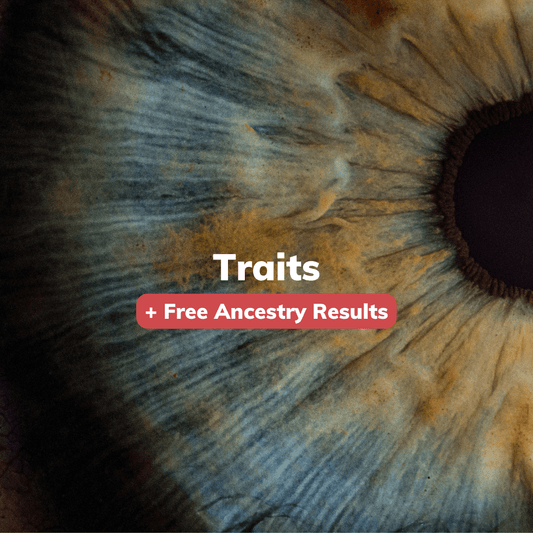
Yes or no for one more cup of coffee?
BioCertica Content TeamWritten by: Jonine Moller, M.Sc. in Sports Science
Among all central nervous system stimulants, caffeine is the most widely used worldwide [1]. Of course, the most typical method of caffeine consumption is coffee.
Coffee is more than just a drink that is consumed hot. For most, it is a morning must, a breakfast companion. It is the code word for a casual or undercover date. It is a reason for friends to get together. No wonder the coffee industry is booming.
For many, a cup of coffee contains the much-needed daily (or sometimes hourly) pick-me-up. But can we consume coffee guilt-free, or should we limit our number of cups? If we should limit our intake, to how much? Is decaf coffee healthier?
Casually reading magazine articles or social media posts may not give you the answers. Some sources tell you coffee is actually good for you, while others tell you it can cause many health problems and withhold health risks.
A recent study investigated the motivation behind coffee consumption [2]. The authors found that four primary factors drive coffee consumption.
The principal reasons are related to enjoyment and habit. The mental and physical energy-providing effect could be said to provide a quarter of the motivation. The last reason is for therapeutic benefits such as alleviating headaches and aiding in improving digestion.
From the study mentioned above, it can be deduced that motivation for coffee consumption is only partly dependent on its caffeine content. A valid question to ask is thus whether it is the amount of caffeine consumed that is potentially harmful.
Interestingly, a study analyzed many research papers that have been done on coffee intake and the risk for all-cause death [3]. According to their findings, drinking coffee decreases your risk for death, whether caffeinated or decaffeinated. These findings mean that coffee in itself, separate from caffeine, may have health benefits. The same results have come from studies that focused on type 2 diabetes risk [4, 5].
The above finding is consistent across many studies. In moderate amounts (any amount from 1 - 5 cups per day), coffee consumption is widely associated with health benefits and decreased risk of disease and death [5, 6, 7, 8, 9, 10, 11].
The benefits of coffee are related to many different conditions. Moderate intakes up to five cups per day are associated with reduced long-term risk for type 2 diabetes [4, 5]. Once again, this may be linked to components other than caffeine.
Keeping “moderate” consumption in mind when speaking about the health benefits of coffee implies that high intakes may not be good. This is indeed the case. The pooled results of many studies confirm that moderate consumption decreased cardiovascular risk but that there is a possible slight increase in risk when drinking more than about five cups per day [11].
Precisely how much coffee within the reported range is best seems to come down to how much caffeine your body can handle. Symptoms, or side effects, that go along with caffeine sensitivity and consuming too much caffeine include [1]:
- Anxiety, restlessness, fidgeting, feeling irritable or agitated
- Insomnia
- Facial flushing
- Increased urination
- Muscle tremors and twitches
- Irregular or increased heart rate
- Upset stomach
Generally, 400mg of caffeine per day is tolerable by most [1, 6]. Pregnant women [9], people with severe anxiety, cardiovascular disease, uncontrolled blood pressure [10], arrhythmias, or liver or kidney problems should, however, exercise caution and limit caffeine intake [1].
400mg of caffeine is equal to roughly 3 - 5 cups of coffee, depending on many factors. The type of coffee (bean/seed and extraction method) makes a considerable difference to caffeine content [12]. Energy drinks may be remarkably high in caffeine, but their content varies very much.
Caffeine remains in the blood for an average of five hours, but a lot of variation exists [12]. Being obese, female [9], and a smoker [7] decreases the rate at which caffeine is cleared from your system [12].
A specific enzyme (CYP1A2) in the liver is responsible for most caffeine metabolism [1, 12]. Variations in the gene responsible for coding this enzyme have significant impacts on its activity. The activity of CYP1A2, which is genetically determined, determines how fast you can metabolize caffeine.
How fast you metabolize caffeine determines how much you should be able to consume safely. A study was done specifically on the relationships between coffee consumption, the risk for a heart attack, and CYP1A2 genes. It was confirmed that the faster you metabolize caffeine, the more you can consume before it adds to your health risk [13].
Slow metabolizers should be able to consume about four cups of coffee per day safely. More than this may add to cardiovascular risk. The study mentioned above did not find risks related to any amount of coffee consumption for fast caffeine metabolizing individuals.
To find out how much caffeinated coffee is safe for you to enjoy, all you have to do is have your CYP1A2 gene tested. Thanks to the newest technology, this has been made possible, easily accessible, and affordable.
References:
[1] Evans J, Richards JR, Battisti AS. Caffeine. [Updated 2020 Dec 2]. In: StatPearls [Internet]. Treasure Island (FL): StatPearls Publishing; 2021 Jan-. Available from: https://www.ncbi.nlm.nih.gov/books/NBK519490/
[2] Samoggia, A., & Riedel, B. (2019). Consumers’ perceptions of coffee health benefits and motives for coffee consumption and purchasing. Nutrients, 11(3). https://doi.org/10.3390/nu11030653
[3] Li, Q., Liu, Y., Sun, X., Yin, Z., Li, H., Cheng, C., Liu, L., Zhang, R., Liu, F., Zhou, Q., Wang, C., Li, L., Wang, B., Zhao, Y., Zhang, M., & Hu, D. (2019). Caffeinated and decaffeinated coffee consumption and risk of all-cause mortality: a dose–response meta-analysis of cohort studies. Journal of Human Nutrition and Dietetics, 32(3), 279–287. https://doi.org/10.1111/jhn.12633
[4] Reis, C. E. G., Dórea, J. G., & da Costa, T. H. M. (2019). Effects of coffee consumption on glucose metabolism: A systematic review of clinical trials. Journal of Traditional and Complementary Medicine, 9(3), 184–191. https://doi.org/10.1016/j.jtcme.2018.01.001
[5] Carlström, M., & Larsson, S. C. (2018). Coffee consumption and reduced risk of developing type 2 diabetes: A systematic review with meta-analysis. Nutrition Reviews, 76(6), 395–417. https://doi.org/10.1093/nutrit/nuy014
[6] Gökcen, B. B., & Şanlier, N. (2019). Coffee consumption and disease correlations. Critical Reviews in Food Science and Nutrition, 59(2), 336–348. https://doi.org/10.1080/10408398.2017.1369391
[7] Grosso, G., Micek, A., Godos, J., Pajak, A., Sciacca, S., Bes-Rastrollo, M., Galvano, F., & Martinez-Gonzalez, M. A. (2017). Long-term coffee consumption is associated with decreased incidence of new-onset hypertension: A dose–response meta-analysis. Nutrients, 9(8). https://doi.org/10.3390/nu9080890
[8] Kim, Y., Je, Y., & Giovannucci, E. (2019). Coffee consumption and all-cause and cause-specific mortality: a meta-analysis by potential modifiers. European Journal of Epidemiology, 34(8), 731–752. https://doi.org/10.1007/s10654-019-00524-3
[9] Poole, R., Kennedy, O. J., Roderick, P., Fallowfield, J. A., Hayes, P. C., & Parkes, J. (2017). Coffee consumption and health: umbrella review of meta-analyses of multiple health outcomes. BMJ (Clinical Research Ed.), 359, j5024. https://doi.org/10.1136/bmj.j5024
[10] Rodríguez-Artalejo, F., & López-García, E. (2018). Coffee Consumption and Cardiovascular Disease: A Condensed Review of Epidemiological Evidence and Mechanisms. Journal of Agricultural and Food Chemistry, 66(21), 5257–5263. https://doi.org/10.1021/acs.jafc.7b04506
[11] Zhou, A., & Hyppönen, E. (2019). Long-term coffee consumption, caffeine metabolism genetics, and risk of cardiovascular disease: A prospective analysis of up to 347,077 individuals and 8368 cases. American Journal of Clinical Nutrition, 109(3), 509–516. https://doi.org/10.1093/ajcn/nqy297
[12] dePaula, J., & Farah, A. (2019). Caffeine Consumption through Coffee: Content in the Beverage, Metabolism, Health Benefits and Risks. Beverages, 5(2), 37. https://doi.org/10.3390/beverages5020037
[13] Cornelis, M. C., El-Sohemy, A., Kabagambe, E. K., & Campos, H. (2006). Coffee, CYP1A2 Genotype, and Risk of Myocardial Infarction. JAMA, 295(10), 1135. https://doi.org/10.1001/jama.295.10.1135


